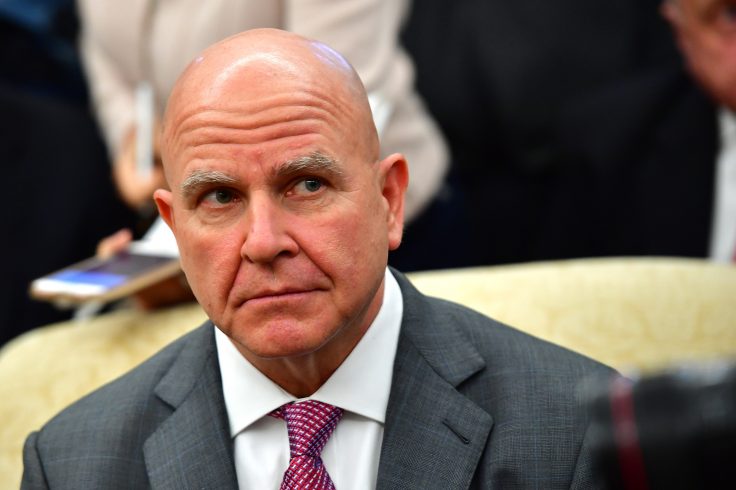H.R. McMaster, the retired general and former national security adviser, resigned in protest from the board of a Washington, D.C., think tank last month after expressing concern internally that funding from the billionaire Charles Koch was tainting the institution's scholarship.
McMaster, according to two sources familiar with the situation, was alarmed by the publication in March of an Atlantic Council report arguing that the promotion of human rights undercuts America's strategic interest. The report, authored by Emma Ashford and Matthew Burrows, was a product of an Atlantic Council project, the New American Engagement Initiative, funded by a $4.5 million grant from the Charles Koch foundation, according to a press release issued when the grant was announced.
The report was the source of public controversy at the time, eliciting a rare rebuke from nearly two dozen Atlantic Council fellows who issued a statement disassociating themselves from their colleagues' views. "We the undersigned disagree with its arguments and values and we disassociate ourselves from the report," the statement read.
McMaster, sources told the Washington Free Beacon, expressed concern to Atlantic Council CEO Frederick Kempe that the Koch money imperiled the integrity of the institution. It is unclear how Kempe responded to those complaints.
A spokesman for the Atlantic Council did not respond to a request for comment. McMaster declined to comment.
The Atlantic Council accepts donations from an array of institutions, both domestic and international, but has insisted that the source of its funds has no impact on the scholarship it produces. Critics, however, allege that the organization has become a free-for-all in which foreign governments and domestic political players can effectively buy influence. Those critics point in particular to the organization's tight relationship with Turkish business conglomerates and its policy of allowing registered lobbyists and foreign agents to serve as scholars and members of the board of directors.
The Atlantic Council has an enormous board of directors that includes retired public servants like George W. Bush national security adviser Stephen Hadley and Gen. David Petraeus; lobbyists like Sally Painter of Blue Star Strategies, who is now under federal investigation for her work for the corrupt Ukrainian gas giant Burisma; and Amir Handjani, a onetime foreign agent for Saudi Arabia's government-controlled investment fund.
Over the past decade, Koch has seeded programs at think tanks across the country to advance a "restrained" vision for American foreign policy that would see America retreat from the world stage and take a softer approach to geopolitical adversaries like China and Iran. The view, which has a long tradition in Republican politics from the America First Committee of the 1940s to the Buchananites of the 1980s and '90s, has since then been relegated to the political fringes.
Koch and his team are seeking to change that. He teamed up with the left-wing activist George Soros to help launch the Quincy Institute, which serves as the home base to dozens of like-minded scholars, including several who have been harsh critics of perceived Jewish influence on American foreign policy. The Quincy Institute also provides funding for proponents of "restraint" at institutions from the Atlantic Council to the Carnegie Endowment for International Peace, the libertarian CATO Institute, and the government-funded RAND Corporation. The Quincy Institute scholar Stephen Wertheim on Tuesday announced his departure to Carnegie's American Statecraft program, funded earlier this year by a new Koch grant.
The new restrainers often argue that the United States should marginalize human rights issues in foreign policy because voicing criticism of adversaries like China and Russia for their abuse of their own citizens can lead to increased conflict. The Atlantic Council report, for example, slammed the Biden administration's decision to impose sanctions on Russia after the country's imprisonment of opposition leader Alexei Navalny. "Russian behavior on human rights is deplorable, but the United States has other salient interests pertaining to Russia," the authors wrote, dismissing the sanctions as "largely symbolic."
McMaster, whose name has since been removed from the Atlantic Council's extensive list of board members, has been an outspoken critic of the new scholarship of restraint, to which he referred in an August 2020 Foreign Affairs piece as "Retrenchment Syndrome."
"Their pleas for disengagement are profoundly narcissistic, as they perceive geopolitical actors only in relation to the United States," McMaster wrote. "Retrenchers ignore the fact that sometimes wars choose you rather than the other way around: only after the most devastating terrorist attack in history did the United States invade Afghanistan."
